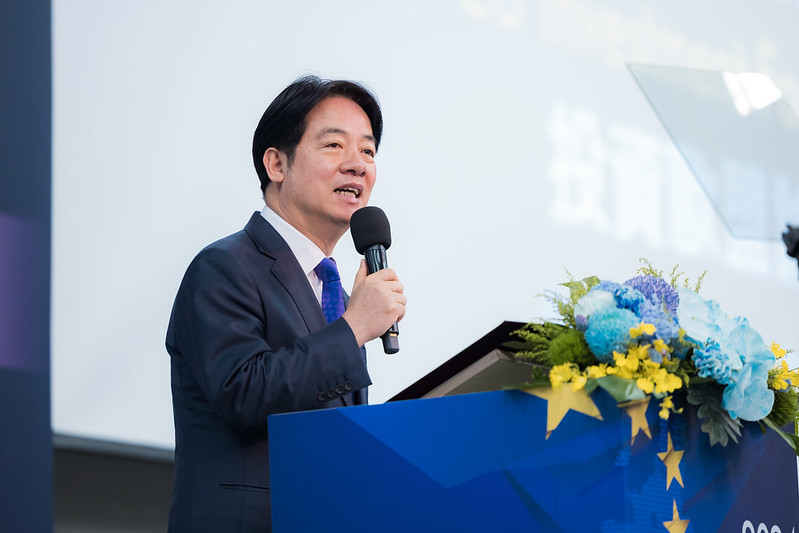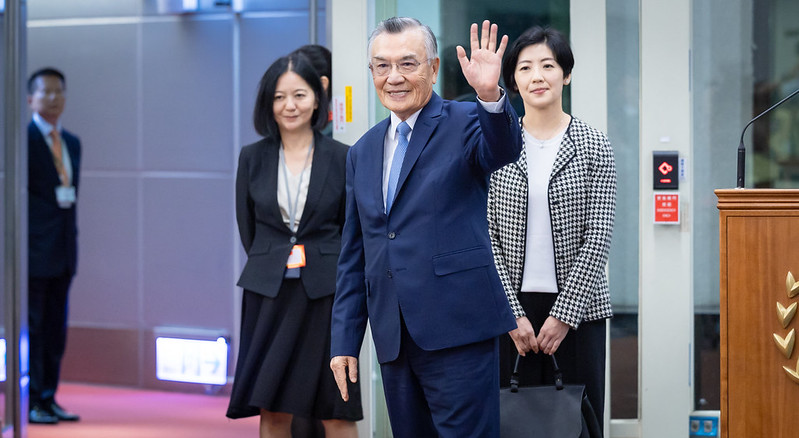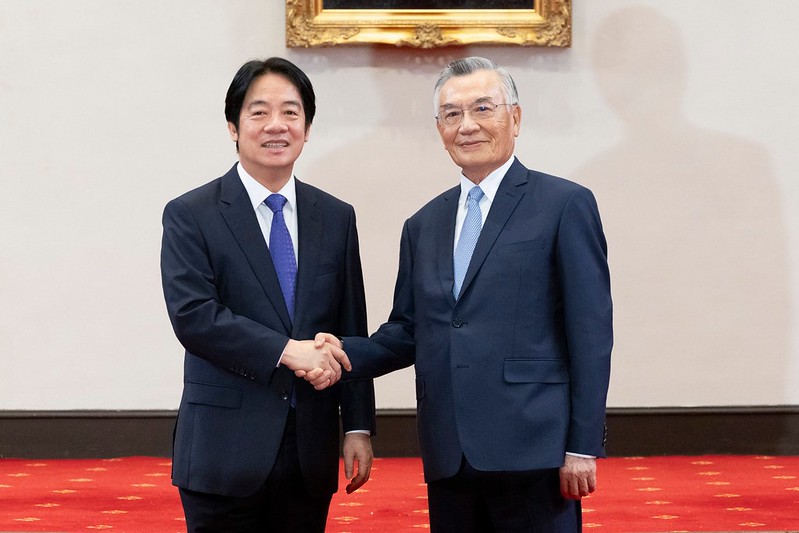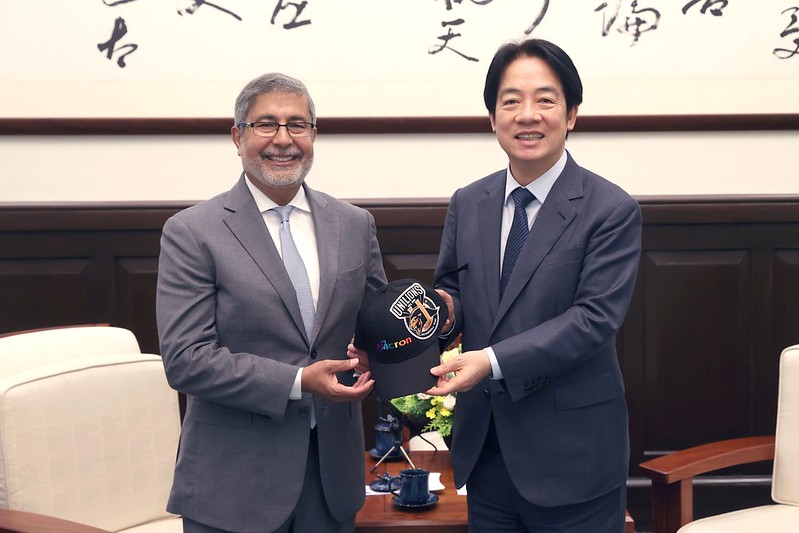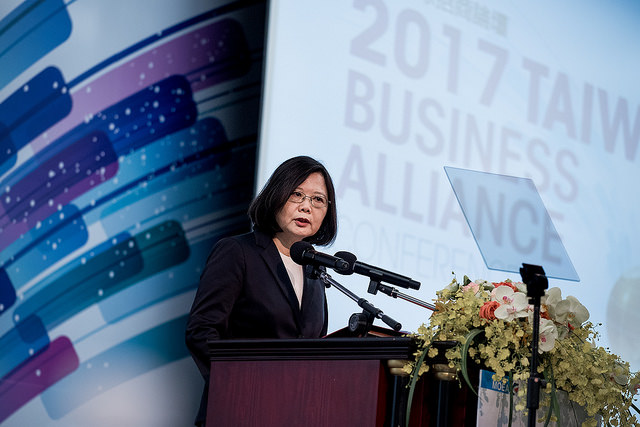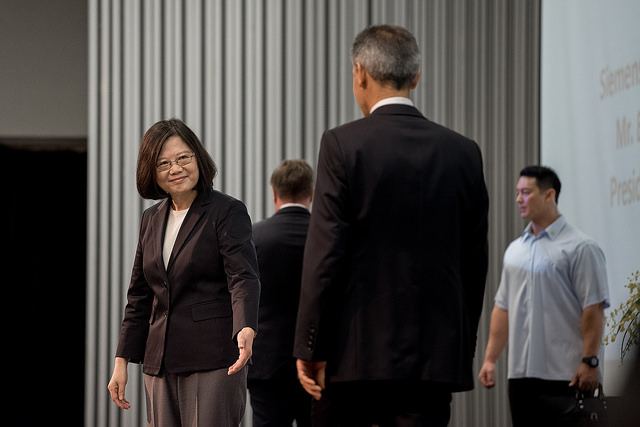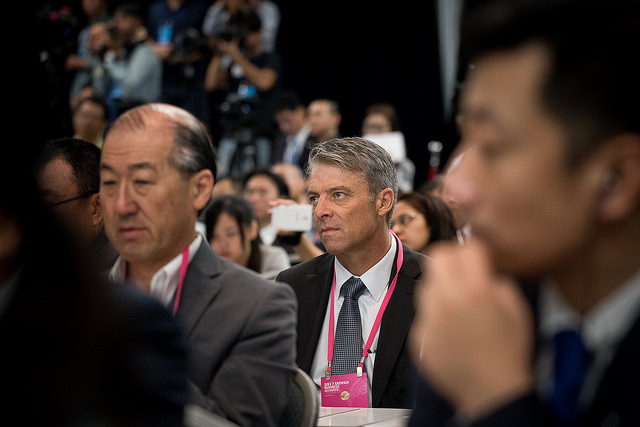News & activities
 News releases
News releases
Distinguished guests;
Ladies and gentlemen:
Good morning!
I would like to start by thanking Deputy Minister Kung Ming-Hsin (龔明鑫) and the team at the Ministry of Economic Affairs (MOEA) for everything they have done to make this event a success. They have done an impressive job of promoting Taiwan and showing that we are a great place for investment.
I would also like to welcome all the business leaders that have come from around the world to join this event. To all the overseas Taiwanese businesspeople here, welcome home!
For the past 14 years, the Taiwan Business Alliance Conference has been an opportunity to showcase Taiwan's investment environment. This year, I'm confident in saying there has never been a more exciting time for you to invest and do business in Taiwan.
Already, many key economic and business indicators are trending upward. Export orders have seen 12 consecutive months of growth. GDP growth is exceeding expectations. The unemployment rate is the lowest it has been in 26 months.
After decades of seeing investment flow overseas, we are starting to bring jobs and opportunities back to Taiwan.
Both the TSMC (Taiwan Semiconductor Manufacturing Co., Ltd) and the Winbond Electronics just recently announced major multi-billion dollar investments in Tainan and Kaohsiung. These investments show their confidence in Taiwan's economy, and are the best endorsement for our economic potential.
In the coming years, the government will continue to do everything we can to build on this momentum. We want to spend as much as need to boost economy. Now, I would like to spend some time to talk about the substantive steps that we are taking to promote economic development and create new investment opportunities here.
Industrial Reform
First, the government is determined to promote industrial reform.
Our "5+2 Industrial Innovation Program" is designed to inject new driving force into the transformation process. By introducing innovation into existing industrial ecosystems, we hope to create a new model of economic development in Taiwan.
In particular, the Internet of Things, smart machinery, green energy, biomedicine, and defense, as well as new agriculture and the circular economy, all take advantage of and further build on Taiwan's existing industrial strengths.
We have also newly launched a national investment company, Taishan Investment and Management Company, to further speed the pace of technology innovation and industrial reform in Taiwan.
Investment in infrastructure is also undeniably vital. The government has allocated a special budget worth hundreds of billions of NT dollars to strengthen rail, green energy, water, digital, as well as urban and rural infrastructure.
Taiwan's Investment Environment
Second, the government is making Taiwan a more investment-friendly environment.
For example, we are working to reduce investment barriers. This includes loosening regulations on raising capital, company formation and registration, as well as the entry and stay of foreign talent.
We are also engaging in tax reform so that our tax regime becomes more equitable, internationally competitive, and attractive to foreign talent.
We know that when investors look towards Taiwan, they expect speed and efficiency. This is why we have also created a new one-stop investment window that will respond to inquiries within 24 hours. The objective is to make it easier to do business in Taiwan.
Building Regional Connections
Last but not least, we are taking better advantage of Taiwan's strategic location in Asia. Taiwan is a critical link to markets in the Asia-Pacific, ASEAN, and South Asia.
Since May 2016, we have made the New Southbound Policy one of our major policy agendas. The objective is to strengthen Taiwan's long-term presence in South and Southeast Asian markets and work together as long-term partners for growth.
Already, we have seen positive results in trade, investment, tourism, and education. In the next phase, we will also prioritize the development of human resources, the forging of long-term industrial partnerships, and sharing of Taiwan's strong SME culture.
We invite companies from around the world to join us in this process. With a growing presence in New Southbound countries, Taiwan is an ideal partner to take advantage of all the opportunities afforded by Asia's rapidly growing markets.
Conclusion
Ladies and gentlemen, Taiwan is changing. It's easy to remember just a few years ago, when the odds seemed stacked against Taiwan's economy: slow GDP growth, falling exports, and increasing competition from across the region.
Thankfully, Taiwan's economy is regaining its vitality and momentum for growth. Together with our industrial reform, our increasingly investment-friendly environment, and growing regional connectivity, you can expect to see more good stories about Taiwan in the years ahead.
As I conclude, I hope that all of you can include Taiwan in your future investment plans. I'm particularly grateful to the 22 companies here that have already signed with our MOEA letters of intent to invest. Thank you for choosing Taiwan as your next partner.
Once again, welcome to Taiwan. I hope you will all have an enjoyable and productive visit.
Thank you!

